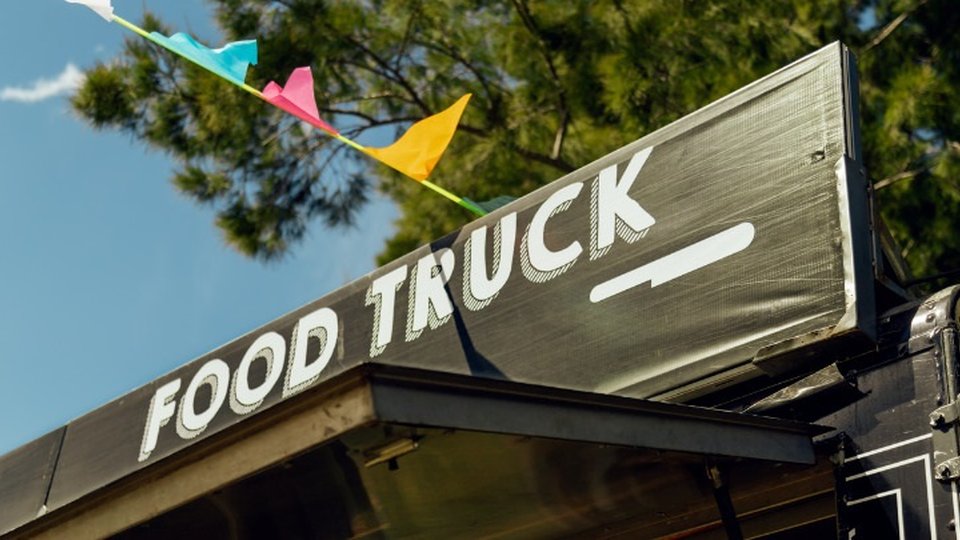Marketing
Part 1: Top 10 food truck cities in the US
While you can find excellent trucks in most cities, there are 10 that stand out for phenomenal offerings of mobile eateries. Here is Webstaurant Store's list of the top 10 and insight on the first five. Stay tuned next week for insight on the second set of top five.

November 9, 2020 by Richard Traylor — Writer, WebstaurantStore
Determining the best cities for food trucks isn't exclusively based on good weather and public interest. State-and-city-imposed fees, permits, and regulations heavily affect a food truck's success and must be factored into your food truck business plan. So, where exactly are food trucks most successful? We've rounded up the top 10 food truck cities in America:
- Portland
- Denver
- Orlando
- Philadelphia
- Indianapolis
- Houston
- Austin
- Los Angeles
- New York City
- Nashville
No. 10: Nashville, Tennessee
Music City, Athens of the South, Nash-Vegas, Nashville is known by many names, all of which bespeak its reputation as a cultural mecca for musicians, intellectuals, and late-night revelers alike. Nashville is the perfect environment for inventive food trucks to thrive.
Thankfully, the city of Nashville provides moderate regulations on food trucks, making it number 10 on the list of the most profitable cities for food trucks. Operating a food truck in Nashville:
• Registration: Food truck operations in Nashville face somewhat high registration fees and an additional water permit.
• City acceptance: The cost of operating a food truck in Nashville is consistent with national averages. In a recent survey by the U.S. Chamber of Commerce Foundation, food truck operators reported that officials are friendly to them at office visits, and that they're only required to visit city offices an average of 15 times to run their food truck business.
• Vending limitations: It is Nashville's unusually high proximity limitations that keep it at the bottom of our top 10 best food truck cities in America list. Nashville food trucks cannot be within 150 feet of a building inhabited by either a full-service or fast-food restaurant.
9. New York City, New York
New York City is steeped in food truck history and is home to some of the best food trucks in the country. However, it's comparatively stringent food truck rules and regulations keep it from topping the list of the best cities for food trucks in America. Operating a food truck in New York City:
• Licensing cap: New York City has placed a cap on the number of available food truck licenses, making it nearly impossible to legally obtain one. Food truck operators in New York City reported that acquiring a two-year vending permit often requires 15 years on the waiting list or paying over $25,000 to obtain one on the black market.
• Impossible restrictions: Food trucks are not allowed to vend from metered parking. Not only are open parking spots hard to come by, they must also be 20 feet from a building's entrances and 10 feet from crosswalks. These two restrictions combined make operating in Manhattan nearly impossible. Food truck operators reported that receiving $65 tickets from the police is just a part of operating a food truck in New York City.
• Extra licenses: Every employee working in your food truck, from the cashier to the chef, is required to have a food handler's license and attend a health department class.
8. Los Angeles, California
As the birthplace of the modern food truck craze, one would expect Los Angeles to top the list of the best cities for food trucks in America. If you're wondering where to get the best food truck food, Los Angeles may still be the answer. However, if you want to know where food trucks are most profitable, the outlandish expense of operating a food truck in Los Angeles prevents the city from topping the list of the best cities for food trucks. Operating a food truck in Los Angeles:
• Restrictions: Los Angeles doesn't impose a lot of restrictions on where food trucks can operate. While food trucks cannot vend on public property, private lots are prevalent and there are few proximity restrictions for operating around schools and public parks. On the whole, Los Angeles has embraced the food truck market as a key element in its culture.
• Permitting expenses: The biggest challenge Los Angeles food truck operators face is that their permit doesn't allow them to operate across the entire county. Obtaining multiple permits to operate across the metro area is extremely costly.
7. Austin, Texas
Thanks to their food truck friendly regulations, the capital of live music seems to be sharing another title these days: food truck capital of America. While Austin may not have as many food trucks as other major cities, they make up for it by producing some of the tastiest eats and offering a profitable market for food truck owners. Operating a food truck in Austin:
• One-stop-shop permitting process: On average, acquiring a food truck permit requires 20 steps and 14 trips to regulatory bodies, but Austin has eliminated this exhaustive process by creating a one-stop-shop for food truck licensing. Additionally license fees in Austin are comparatively lower than America's other best food truck cities.
• Average restrictions: While proximity limitations are in-line with national averages, each county surrounding Austin imposes different taxes and rules which add difficulties and expenses.
• Challenging health inspection process: The most consistently reviled aspect of operating a food truck in Austin by food truck entrepreneurs is the city's difficult health inspection process. A tight window for conducting your inspection is provided, and both the inspection itself and the ensuing approval process is lengthy.
6. Houston, Texas
While food trucks may not be the most practical dining option in 'The Bayou City' (they receive 53 inches of rain per year.) Houston's international residents and strong local traditions of Tex-Mex and BBQ are well-suited to the food truck industry. Thankfully, from residents' tastes to regulatory terms, Houston is a city where food trucks are profitable. Operating a food truck in Houston:
• Zoning: While Houston has no zoning code, Houston's food truck operators are prohibited from using street parking, cannot operate within 100 feet of a restaurant, and must remain 60 feet apart from fellow food trucks.
• Extra commissary fees: Commissary kitchens and storage spaces require food truck operators to visit daily whether they need to or not. Additionally, food truck owners must pay the commissary daily regardless of whether they operated their business on that day.
• Hidden fines and regulations: Houston food truck operators face additional and often unexpected fines such as an electronic monitoring fee. They are also required to submit notarized letters from the private properties where they operate stating that they have permission to use the location and that there are bathrooms on-site.
Some food truck history
The first known food truck was created in 1872 by a man named Walter Scott. Scott cut windows into his wagon and parked in front of a Providence, R.I. newspaper office where he sold sandwiches, slices of pie, and coffee to journalists who worked long and odd hours. For this same reason, parking near a college campus to serve students is profitable for modern food trucks.
While Scott created America's first food truck prototype, the New York City hot dog cart popularized America's street vending tradition. The history of the hot dog cart began in the 1860s with German immigrants serving sausages with milk rolls and sauerkraut from a cart in New York City's Bowery. In 1893, the first official hot dog cart was opened by Charles Feltment in Coney Island with tremendous success, 3,600 dachshund sausages were sold in Feltman's first year.
Stay tuned next week for a look at the other top five food truck cities.
About Richard Traylor
Richard Traylor graduated from Temple University in the winter of 2014 with a degree in Strategic Communications. After graduating, he taught English in South Korea for two years, during which he was fortunate enough to travel and see the world. In October 2016, he returned home and started to work in SEO Content at Webstaurant Store. This blog previously ran on Webstaurant Store.
 ChatGPT
ChatGPT Grok
Grok Perplexity
Perplexity Claude
Claude





